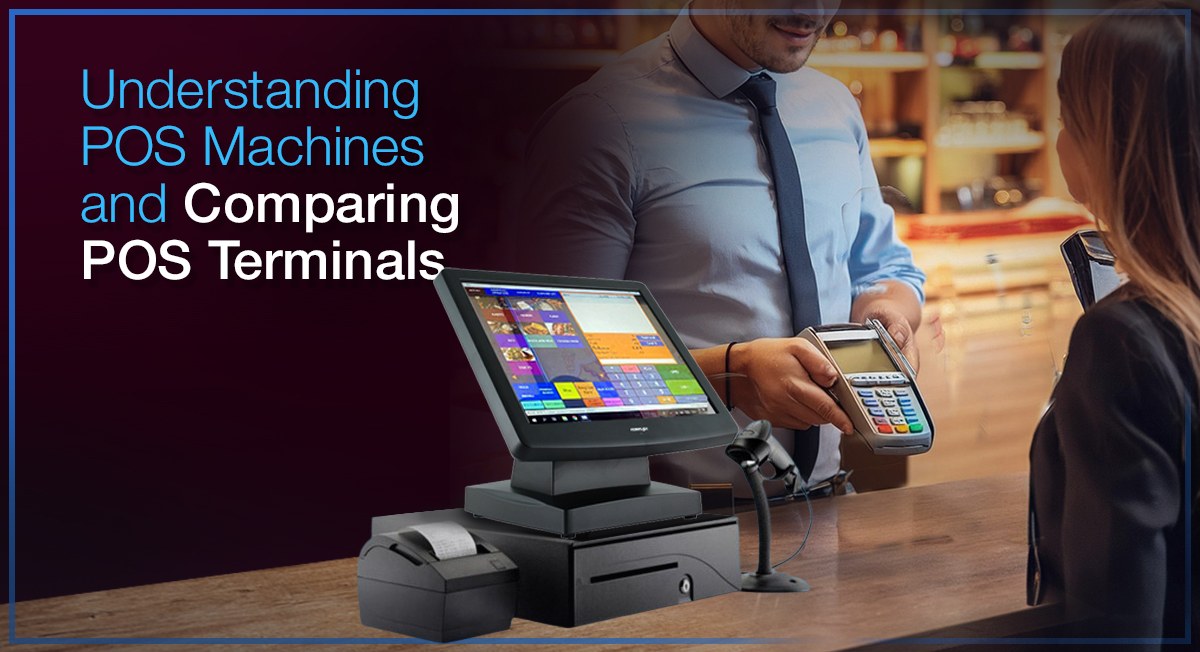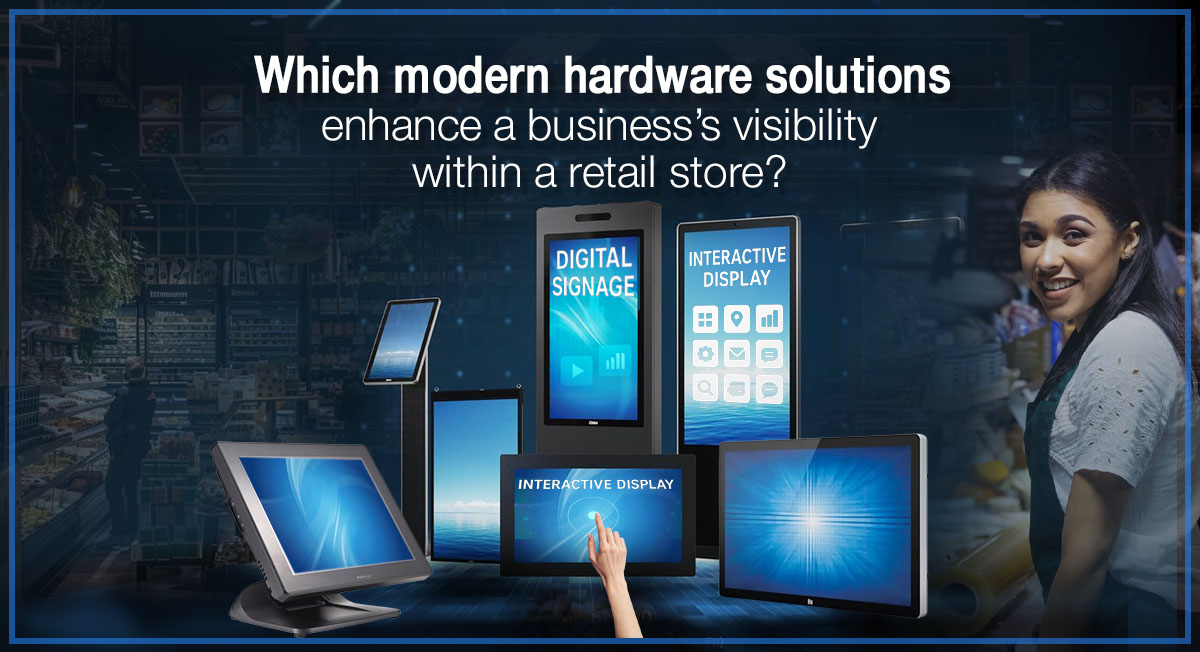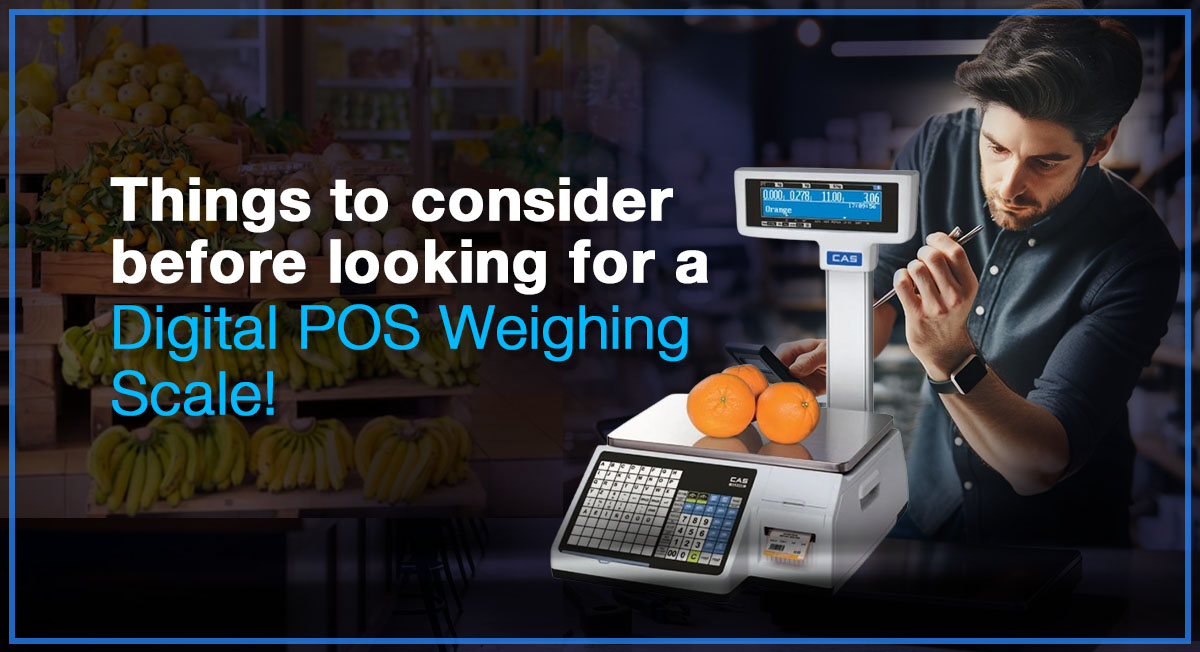Understanding POS Machines and Comparing POS Terminals

Published by - Mahesh Gupta on June 21, 2024 Blog
POS, an abbreviation for “point of sale,” embodies the physical space of transactional activity and encapsulates the comprehensive integration of software and hardware essential for such operations. Additionally, colloquially termed as a POS Terminal, this infrastructure extends beyond mere payment processing, encompassing functionalities vital for business operations such as inventory and employee management. As an indispensable cornerstone in numerous retail and hospitality establishments, a POS system stands poised to optimize efficiency across various critical domains, thereby conserving valuable time and mitigating the inherent risks associated with human error.
Keynote statements
- Point of sale systems are distinguished by their diverse management features, seamlessly integrating with supplementary software for table management, online ordering, delivery services, and a plethora of other functionalities.
- The POS system’s seamless processes and user-friendly interface synergize to expedite transactions and mitigate errors effectively.
- Embracing a POS system investment not only amplifies sales potential but also accelerates service delivery, fostering customer loyalty through tailored experiences and incentivized rewards.
- POS transactions, whether conducted in-person or online, yield receipts in either printed or electronic formats. Notably, cloud-based POS systems are steadily gaining favor among merchants.
- POS machines seamlessly interface with EFTPOS machines, facilitating transactions through various card and device payment methods.
What is a POS?
A Point of Sale (POS) system serves as a device utilized for the processing of transactions by patrons.
The point-of-sale (POS) machine, also known as a POS system or terminal, is designed to efficiently record purchases and enable transactions. It comprises either an independent unit responsible for computing and managing cash, potentially accompanied by a distinct card reader for payment processing, or a unified system that communicates with a card reader via cable or Wi-Fi to streamline payment procedures.
However, the depth of a POS machine exceeds the realm of competing terminologies, encompassing a multitude of nuanced functionalities and operational intricacies.
A restaurant Point of Sale (POS) system encompasses both software and hardware utilized by restaurant proprietors to efficiently manage all facets of their operations. These include order processing, floor plan management, reservation handling, sales analysis, inventory management, staff scheduling, and menu pricing. Given their multifaceted functionality, restaurant POS systems play a pivotal role in ensuring operational fluidity and comprehensive data management.
A retail POS system acts as a central hub, empowering retail staff to provide exceptional service. Its core components barcode scanners, receipt printers, and inventory management tools work together to ensure smooth transactions and effective inventory management, enhancing the overall customer experience.
How a POS Machine Can Transform Your Business?
A Point of Sale (POS) system is instrumental in providing real-time insights into the vitality, expansion, and efficiency of your business. Every expenditure allocated to your enterprise must yield a favorable return, and the POS system serves as a critical tool in facilitating astute decision-making, ensuring the optimization of resources and profitability. Employing an integrated POS system, where a POS machine is seamlessly integrated with an EFTPOS terminal or card/device reader, enables the automation of current procedures, enhances operational efficacy, and optimizes sales and inventory management.
Several advantages stem from the utilization of an integrated POS system, including:
- An integrated Point of Sale (POS) system facilitates expedited customer service delivery, concurrently enhancing the provision of tailored experiences for clientele.
- Integrated POS systems typically offer robust reporting and analytics, furnishing businesses with valuable operational insights.
- Assists small enterprises in expanding their operations through the utilization of multi-site capabilities, fostering scalability.
- The integration of a POS system can yield substantial long-term cost savings.
- The integration of a Point of Sale (POS) system will expedite the checkout procedure.
- Mitigates the risk of fraudulent activities.
- This minimizes the probability of manual errors arising from the utilization of disparate systems that require redundant data entry.
Improve your customers’ experience
By integrating state-of-the-art terminals and secure payment systems, the point of sale (POS) machine transcends mere transaction facilitation to profoundly shape the customer experience. Tailoring interactions to individual preferences emerges as a direct route to capturing customer loyalty. POS systems play a pivotal role in amalgamating multichannel transactions, thereby amplifying both revenue generation and customer contentment within your enterprise. The deployment of Point of Sale (POS) systems stands as a substantial driver in augmenting the overall customer journey, ultimately fostering heightened sales figures.
Save time and increase productivity
A Point of Sale (POS) system offers an array of benefits, including decreased wait times, expedited item scanning, and swifter payment processing. Among the foremost advantages of networked POS machines for enterprises lies in the realm of cost reduction and operational enhancement. Through networked infrastructure, businesses can optimize their workflows, diminish manual inaccuracies, and conserve significant time and resources. By automating diverse tasks and mitigating reliance on manual labor and paperwork, a POS system proves instrumental in economizing both time and finances for businesses. Moreover, the implementation of a POS system facilitates error reduction and fraud prevention, thereby yielding substantial long-term cost savings.
Fewer mistakes, better business operations
A Point of Sale (POS) system is instrumental in minimizing operational tasks within your establishment. For instance, with computerized inventory management, item scanning suffices to record entries into your system, thus facilitating efficient inventory tracking. Manual inventory audits, inherently time-consuming and operationally burdensome, are rendered unnecessary. By automating various functions, a POS system significantly mitigates errors across business activities. Its multifunctional capabilities inherently aid in error reduction, streamlining operations, and enhancing overall operational efficiency.
Valuable sales reports and insights
POS reports serve as invaluable tools for businesses, offering insights that are pivotal for informed decision-making. For instance, these systems can generate transaction reports for individual employees, enabling managers to promptly analyze sales performance and identify top performers. The practice of POS reporting fosters enhanced comprehension of business dynamics, facilitating optimization of inventory levels and insightful analysis of customer behavior and preferences. By meticulously tracking transactions, inventory levels, menu pricing, and other pertinent data points, POS reports empower businesses with comprehensive oversight and strategic foresight.
Enhanced stock management
The integration of POS with inventory control furnishes businesses with instantaneous insights into stock levels, ensuring real-time visibility. Additionally, it enables the implementation of re-stock reminders, the establishment of automated ordering mechanisms at predetermined thresholds, and the seamless facilitation of stock transfers across various locations. With each transaction processed, the POS system diligently updates stock levels, ensuring accuracy and efficiency in inventory management.
Tangible customer data
A POS system serves as a catalyst in maximizing customer outreach by systematically gathering data on shopping habits, preferences, and transaction histories. This data, when effectively managed through Customer Data Management (CDM) practices, becomes instrumental in realizing a myriad of business and marketing objectives. CDM embodies the ethical collection, secure storage, and adept management of customer databases, all aimed at elevating the quality of a company’s services, refining operational processes, and enhancing product offerings.
How do I compare POS machines?
Selecting the most appropriate POS machine holds critical importance for businesses aiming to optimize operations and elevate customer experience. It’s vital to bear in mind that a POS transcends mere machinery; rather, it represents an interconnected system of capabilities facilitating efficient processing of customer transactions and bolstering business processes. Here, we outline key factors to contemplate in your decision-making process.
- Round-the-clock customer support services.
- Compact design for ease of use and space efficiency.
- Reliable offline mode to ensure continuous operation during network disruptions.
- Cloud-based data storage for accessibility and security.
- Functionality to construct and leverage customer profiles to foster loyalty.
- Real-time reporting and analytics for informed decision-making.
- Table management functionality tailored for restaurants.
- On-the-go order taking and payment processing within the establishment.
- Advanced sales and granular inventory management functionalities, including ingredient-level tracking.
- Compatibility with EFTPOS terminals for efficient payment processing.
- Capability to manage diverse transactions like split bills, refunds, and gratuities.
- Seamless integration with value-enhancing software such as accounting, e-commerce, reservations, and loyalty programs.
- Mobile order and payment processing for flexibility.
- Scalable multi-site management functionalities for business expansion
- Mobility features catering to businesses on the move.
Transform your business operations by integrating the ideal Point of Sale (POS) Machine. From facilitating seamless transactions to streamlining inventory management, an adept POS system has the potential to serve as the cornerstone of your enterprise’s prosperity. Hence, the prudent selection of a dependable and precise POS machine and software is paramount for the sustained efficiency of your business endeavors.



